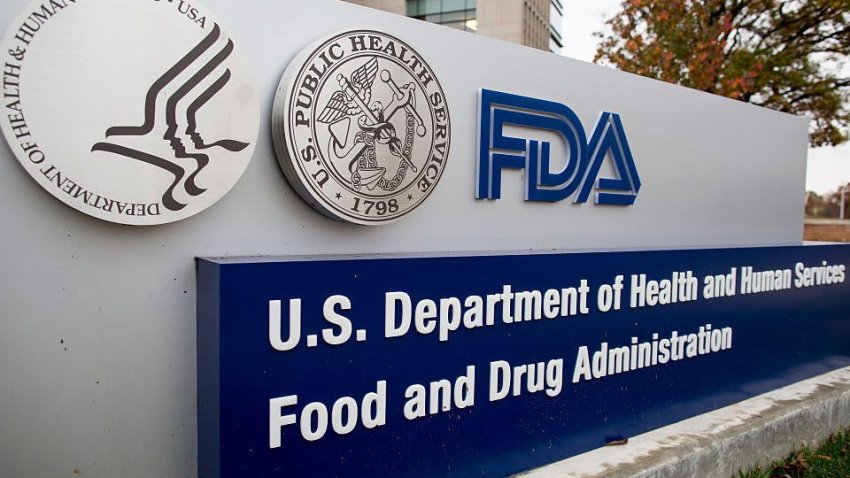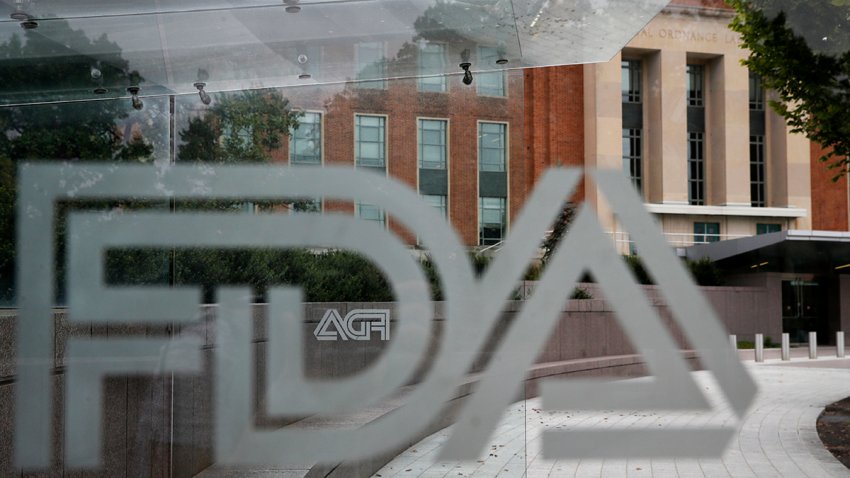-

FDA OKs sales of Zyn nicotine pouches, citing health benefits for adult smokers
Federal health officials are backing the health benefits of nicotine pouches, ruling that Philip Morris International’s Zyn can help adult smokers cut back or quit cigarettes.
-

FDA bans Red No. 3 dye from food and ingested drugs
Red No. 3 is a synthetic dye that has been linked to cancer in animals and is already banned or severely restricted in places outside the U.S., including Australia, Japan and countries in the European Union.
-

FDA proposes putting nutrition info on the front of food packages
The new labels will put saturated fat, sodium and added sugar directly in front of shoppers in an effort to nudge people to make healthier choices.
-

FDA limits toxic lead in some baby foods
The Food and Drug Administration has set maximum levels for lead in baby foods like jarred fruits and vegetables, yogurts and dry cereal.
-

FDA proposes standardized testing to detect asbestos in talc cosmetics
Cosmetic companies would have to take extra steps to ensure that any products containing talc are free of asbestos under a federal rule proposed Thursday.
-

FDA says decongestant in many cold medicines doesn't work. So what does?
For consumers, the change will likely mean switching to alternatives, including nasal sprays or older oral decongestants that were moved behind the pharmacy counter almost two decades ago.
-

FDA implements new rules for which packaged foods can be labeled healthy
The Food and Drug Administration is implementing new rules to help consumers make healthier choices. News4 Consumer Reporter Susan Hogan has all the insights on what to look out for when grocery shopping.
-

FDA ruling limits which foods can be labeled ‘healthy' on packaging
What does “healthy” mean? New guidelines for food labels focus on what we should eat, instead of what we shouldn’t.
-

What is raw milk and why can it make you sick?
Raw milk has not been pasteurized, a heating process that kills disease-causing germs.
-

What is red food dye and what products use it?
Red food dye is commonly used in beverages, snacks and candies, but it’s come under scrutiny for possible links to cancer and behavioral problems in children.
-

FDA may finally ban artificial red dye from beverages, candy and other foods
A decision on Red No. 3, the synthetic coloring made from petroleum, could come in the next few weeks.
-

Carrot recall: FDA lists more products, grocery stores linked to E. coli outbreak
A recent E. coli outbreak linked to organic, bagged carrots that has sickened nearly 40 people across 18 states has led other popular brands to recall vegetables because of possible contamination, including additional products sold at Whole Foods.
-

New FDA rules for TV drug ads: Simpler language and no distractions
New rules require drugmakers to be clearer about explaining the risks and side effects of prescription drugs.
-

What to know about Robert F. Kennedy Jr., Trump's pick for health secretary
Robert F. Kennedy Jr. has promoted claims about vaccines that contradict the overwhelming consensus of scientists.
-

FDA proposes ending use of decongestant found in many cold, allergy medicines
The FDA said the proposed order is not final yet, which means companies can still market over-the-counter drugs containing oral phenylephrine for now.
-

Why do we see prescription drug shortages?
Forty years after the Hatch-Waxman Act, which provided widespread access to affordable generic versions of medications, the market is struggling with persistent shortages brought about partly by low prices.
-

Nearly 2,000 drug plants are overdue for FDA checks after COVID delays, AP finds
U.S. health inspectors are still struggling to address a massive backlog of pharmaceutical plants that went uninspected during disruptions caused by COVID-19. That’s according to an analysis of government data by the Associated Press. The data shows roughly 2,000 drug manufacturing sites around the world have not had a Food and Drug Administration inspection for quality since before the pandemic....
-

Teen vaping hits 10-year low in US, new data show
Youth vaping levels fell to the lowest in a decade this year, according to a new report from the Centers for Disease Control and Prevention and the Food and Drug Administration.
-

Doctors soon required to tell mammogram patients about breast density
Soon, doctors must tell their mammogram patients if they have dense breast tissue, a factor that can make it harder to detect breast cancer and put them at greater risk for cancer. The Food and Drug Administration released new standards in March of 2023 in an effort to help more women detect breast cancer sooner. The FDA gave providers until…
-

What to know about a new mammogram regulation
A D.C. woman who is a two-time breast cancer survivor says for a long time she didn’t know she had dense breast tissue. A new rule aims to provide more people with the knowledge about their breast density. News4’s Aimee Cho reports.

